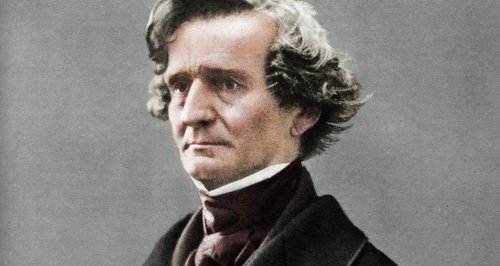
Hector Berlioz, the eminent composer of the Classical era, led a life filled with extraordinary creativity and profound isolation. His music is known for its innovative and dramatic qualities, yet throughout his life, it was often met with indifference and misunderstanding.
Despite his remarkable talent, Berlioz wrestled with feelings of alienation and frustration. While some of his contemporaries—such as Richard Wagner—respected his work, they often struggled to fully understand or appreciate it. The general public also remained largely indifferent to his music, a disregard that led Berlioz to despair and feelings of worthlessness.
Deeply pained by this lack of recognition, Berlioz expressed his sorrow in his memoirs. He even saw death as an escape from a world that failed to comprehend his genius. Ironically, it was only after his death in 1869 that his music began to receive the acclaim it deserved.
Berlioz, the famed French composer, was a complex figure—an amalgam of extraordinary ambition and deep scorn for his peers. Born in a small French town, he compared his own birth unfavorably to that of historical giants like Virgil and Alexander the Great.
This self-important view propelled him to Paris, where he first studied medicine and then turned to composition. However, Berlioz found Parisian cultural life lacking the intellectual and artistic depth he craved. He scorned the tastes of Parisians, dismissing them as narrow-minded consumers of music that required no effort to understand. He once wrote of Parisians: “They seek scores that, like a plate of macaroni, they can immediately absorb without thinking or even paying attention.”
Today, Berlioz is recognized as a visionary composer whose influence on subsequent generations is undeniable. His Symphonie Fantastique is considered a cornerstone of the orchestral repertoire, and his operas—though challenging to perform—continue to captivate audiences and inspire musicians.
Still, even in the 21st century, not all facets of Berlioz’s artistry have been fully explored or understood. His music defies easy categorization and demands deep engagement from listeners. While his legacy has grown significantly since his death, much remains to be done to fully appreciate the complexity and brilliance of his work.
This year, the Bard Music Festival—held each August on the campus of Bard College in New York’s Hudson Valley—is devoted to Berlioz, a testament to the enduring fascination with this enigmatic composer. Through concerts, panel discussions, and scholarly essays, the festival seeks to illuminate the many dimensions of Berlioz’s creativity—from his compositions to his writings, and his role as a conductor and artistic visionary.
Ultimately, the story of Hector Berlioz is a tragic yet triumphant one. During his lifetime, he was a misunderstood genius, but in death, he found his rightful place. Even so, the full scope of his impact on music history is still unfolding, as audiences and scholars continue to grapple with the depth and brilliance of his art.